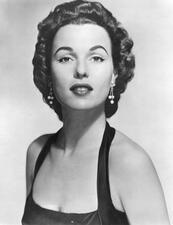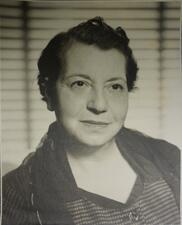
Moroccan Jewish Women and Politics
Jewish women have been involved in Moroccan politics since at least the nineteenth century. From a Jewish martyr of the early nineteenth century, to a twenty-first century Jewish woman running for parliament, Morocco has been home to remarkable Jewish women participating in political life.
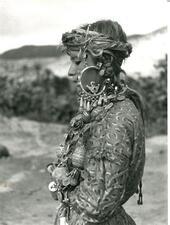
Morocco: Nineteenth and Twentieth Centuries
The Moroccan Jewish community was the largest Jewish community in North Africa during the nineteenth and twentieth centuries. The status of Moroccan Jewish women was affected by a variety of factors, including a patriarchal order and social changes brought about by economic development, urbanization, and contact with European countries.
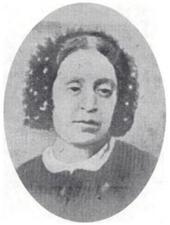
Rachel Morpurgo
Italian Hebrew poet Rachel Morpurgo was part of the renaissance of Hebrew poetry and literature that began at the end of the eighteenth century. While earlier Italian Jewish women poets had written almost entirely in Italian, Morpurgo wrote all her poems in Hebrew and can be considered the first Hebrew woman poet.
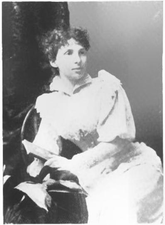
Martha Morton
As a female playwright, Martha Morton faced adversity within the male-dominated New York theater world. Despite repeated rejection, she achieved fame and prosperity. Resisting expectations of women writers, Morton took a firm hand in production, often casting and directing her own work.
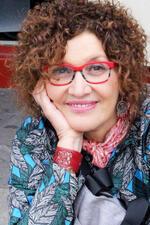
Myriam Moscona
Myriam Moscona is a Sephardic Mexican poet, novelist, journalist, and translator. She is the author of Tela de sevoya/ Onioncloth, an award-wining novel about the Sephardic experience, reflecting on death and Ladino, and Ansina (Like that, 2015), a book of poetry entirely written in Judeo-Spanish.
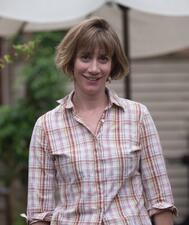
Laura Moser
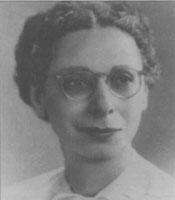
Bessie Louise Moses
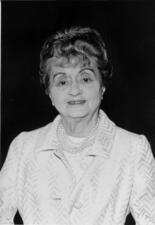
Lucy Goldschmidt Moses
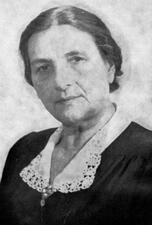
Moshavah
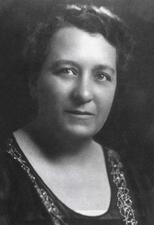
Belle Moskowitz
Belle Moskowitz served for two decades as a settlement worker, social and civic reformer, and labor mediator. In the early 1920s she became one of New York governor Alfred E. Smith’s closest advisers.
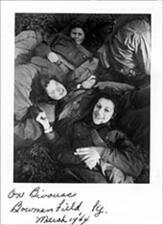
Yetta Moskowitz
Mary Moss
Mother of Micah: Bible
The story of Micah’s mother in Judges 17 is short, but it offers a key insight into ancient Israelite women’s important role as a leader in household worship.
Mother of Micah: Midrash and Aggadah
One midrash posits that Delilah was Micah’s mother, based on two stories in the Bible that mention Delilah and Micah immediately after one another. However, Rashi argued that the timelines of Delilah and Micah’s lives meant that they could not be related.
Mother of Samson: Bible
Though her name is never mentioned, Samson’s mother plays a vital role in shaping her son, one of the greatest among the Judges. When notified by a divine messenger that her son must be a Nazirite, she herself keeps the Nazirite vows, ensuring that he could grow up to become a hero to Israel.
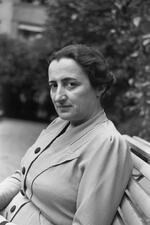
Margarete Muehsam-Edelheim
Margarete Muehsam-Edelheim was a journalist with a doctorate in law. In her native Berlin, she co-founded the organization Women Law Graduates and served as a City Councilor. In the United States, Muehsam-Edelheim was a founding member of the Leo Baeck Institute’s Women Auxiliary, as well as serving in many capacities for various organizations.
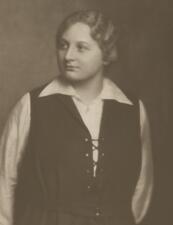
Anitta Müller-Cohen
Yocheved [Judith] Herschlag Muffs
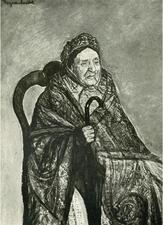
Regina Mundlak
Regina Mundlak was a skilled artist who exhibited her works in Warsaw at the Society for Promotion of Fine Arts and at the Aleksander Krywult Salon, and the Cassirer Salon in Berlin. She was interested in depicting Jewish life in the Diaspora, first through sketched portraits and later with oil paint. In 1942 she was probably deported from the Warsaw Ghetto to the Treblinka extermination camp.
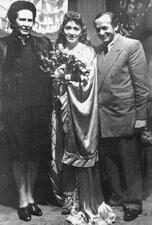
Music: Palestine and Israel
Music in Israel is a giant mosaic of cultures, styles, and musical traditions from the region and around the world. In every way and at all times, especially since the establishment of the state, women have been active in and have left their mark on the country’s musical life.
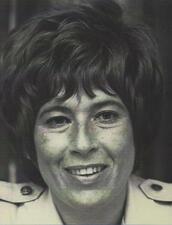
Ruth Muskal
Ruth Muskal’s term as commanding officer of the Women’s Corps (1973–1975) of the Israel Defense Forces saw a distinct increase in women’s role in defending the country. Muskal took great care to preserve women’s rights, as well as the independence and status of the Women’s Corps.
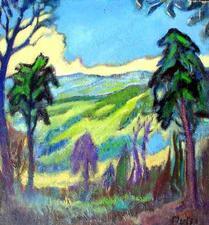
Mela Muter
Mela Muter was the first professional Jewish woman painter in Poland. She immigrated to Paris in 1901, and her portraits, landscapes, and still lifes reveal the influence of major artistic currents of the turn of the century: synthetism of École de Pont-Aven, van Gogh’s expressionism, French fauvism, and cubism. Her works have been shown in exhibits throughout France and New York.
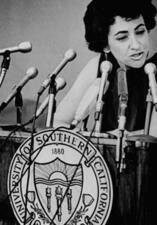
Barbara Myerhoff
An award-winning anthropologist and feminist scholar, Barbara Myerhoff emphasized the importance of storytelling and studying one’s own community. Myerhoff’s work pioneered the study of elderly Jews and highlighted the role of women in religion, which had been previously neglected by the scholarly world.
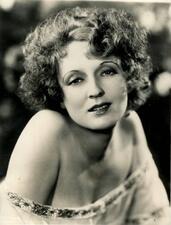
Carmel Myers
Born in San Francisco, California, actress and entertainer Carmel Myers acted in over seventy films, was an early television talk-show host, led a production company that packaged radio and television shows, held a patent for an electronic synchronizer that controlled studio lights, and imported and distributed French perfume.
